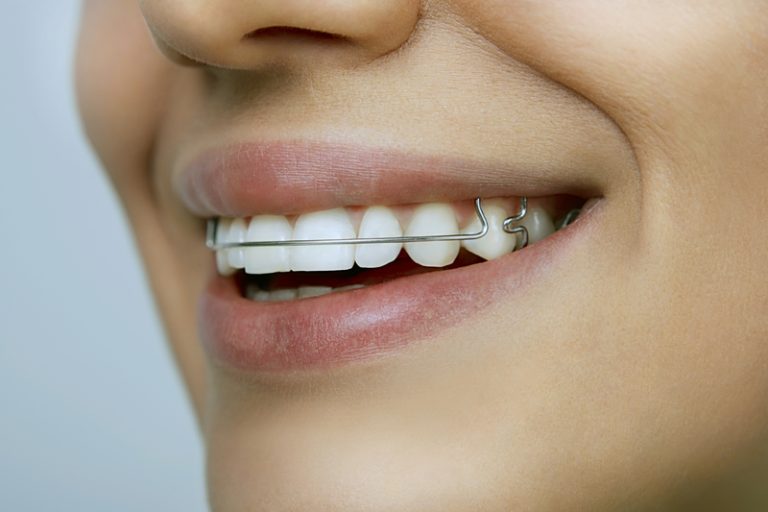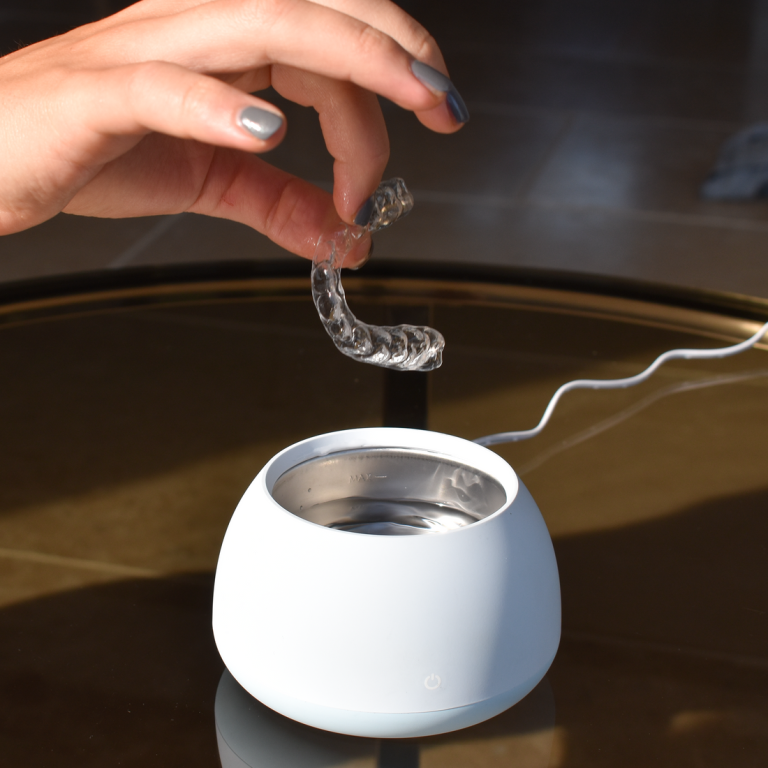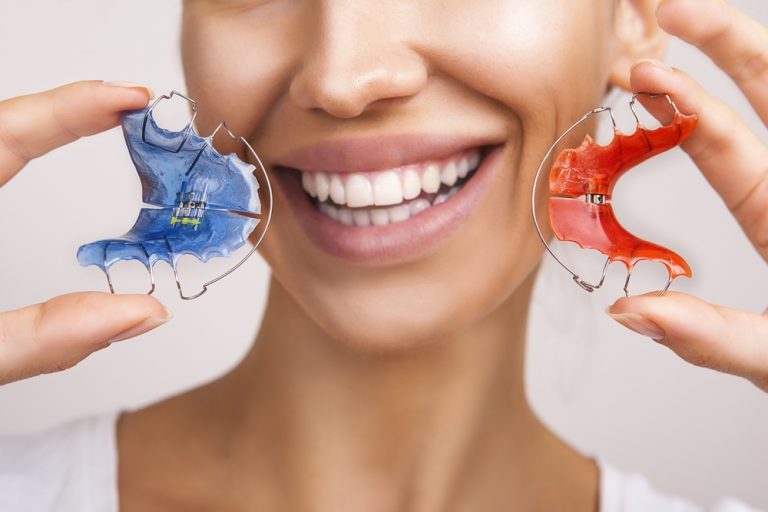Best Way to Clean Retainers: Expert Tips for Sparkling Results
Last Updated on 1 month by DR. ALBIN SIPES
Keeping your retainers clean is crucial for oral health. Dirty retainers can harbor bacteria and cause bad breath.
Retainers play a vital role in maintaining your beautiful smile, but they need proper care to stay effective and hygienic. Many people overlook the importance of regular cleaning, which can lead to unpleasant odors and potential health issues. So, what is the best way to clean retainers?
In this blog post, we’ll explore various methods to keep your retainers spotless and safe. From simple daily routines to deep-cleaning techniques, we’ll cover everything you need to know. By following these tips, you’ll ensure your retainers remain fresh and effective for years to come. Let’s dive in and discover the best cleaning practices for your retainers.
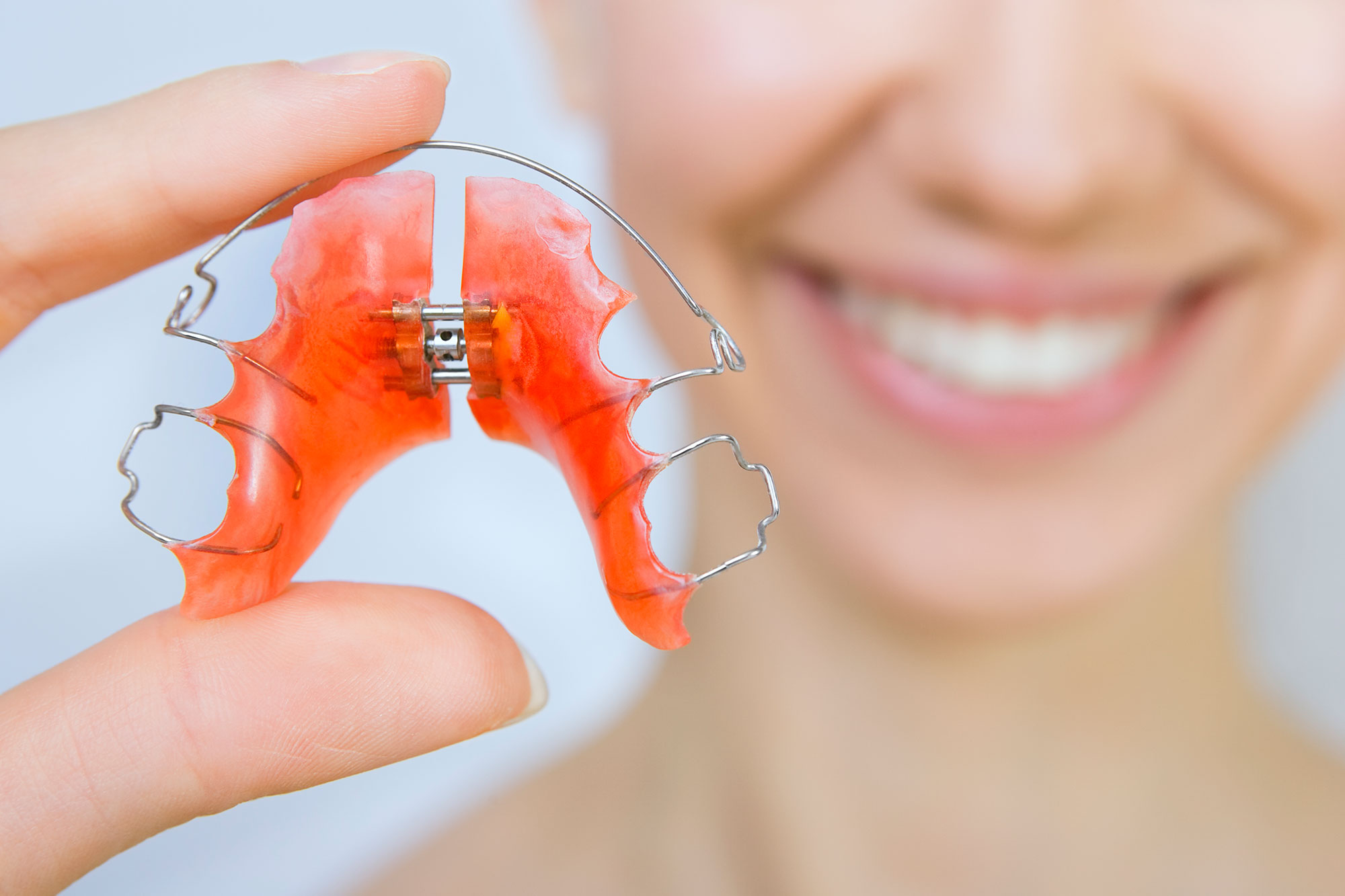
Importance Of Clean Retainers
Retainers are essential for maintaining straight teeth after orthodontic treatment. Keeping them clean is crucial for your oral hygiene. Dirty retainers can harbor bacteria and cause bad breath. They can also lead to oral infections.
Proper cleaning ensures your retainers stay effective. It also keeps your mouth healthy. In this section, we will discuss the importance of clean retainers. We will focus on preventing bacteria build-up and maintaining oral health.
Preventing Bacteria Build-up
Retainers can collect bacteria, plaque, and food particles. This build-up can lead to unpleasant odors and taste. It can also cause health issues. To prevent bacteria build-up, clean your retainer daily.
Use a soft-bristled toothbrush and non-abrasive toothpaste. Gently scrub all surfaces of the retainer. Rinse thoroughly with lukewarm water. Avoid using hot water as it can warp the retainer.
Consider soaking your retainer in a cleaning solution. There are many options available. Follow the instructions on the package. Regular cleaning will help keep bacteria at bay.
Maintaining Oral Health
Clean retainers contribute to better oral health. They prevent the spread of bacteria in your mouth. This reduces the risk of cavities and gum disease.
A dirty retainer can irritate your gums and cause infections. It can also lead to bad breath. By keeping your retainer clean, you ensure a healthier mouth.
Regular cleaning also extends the life of your retainer. A well-maintained retainer remains effective for longer. This saves you money in the long run.

Daily Cleaning Routine
A consistent daily cleaning routine is essential for keeping your retainers clean and fresh. Neglecting this can lead to a buildup of bacteria, plaque, and unpleasant odors. Here’s a simple yet effective routine to ensure your retainers remain in top condition.
Rinsing After Removal
Always rinse your retainer with lukewarm water immediately after removing it. This helps remove saliva and debris. Avoid using hot water as it can distort the retainer’s shape. A quick rinse prevents the buildup of bacteria and plaque.
Brushing With Toothpaste
Toothpaste is not just for your teeth. Use a soft-bristled toothbrush and non-abrasive toothpaste to gently brush your retainer. Make sure to brush every nook and cranny. This removes any lingering food particles and bacteria.
Create a dedicated toothbrush for your retainer. This ensures it stays clean and hygienic. Brush your retainer at least once daily, preferably before bed. This keeps it fresh and ready for use.
| Step | Action | Importance |
|---|---|---|
| 1 | Rinse with lukewarm water | Prevents bacteria buildup |
| 2 | Brush with non-abrasive toothpaste | Removes food particles |
| 3 | Use a soft-bristled toothbrush | Avoids scratches |
Remember, consistent daily cleaning ensures your retainer remains effective and comfortable to wear. Follow these steps to maintain a clean and healthy retainer.
Weekly Deep Cleaning
Weekly deep cleaning of your retainers is crucial. It helps to keep them free from bacteria, plaque, and odors. This not only keeps your retainers in good condition but also helps maintain your oral health.
Soaking Solutions
Soaking solutions are an effective way to deep clean your retainers. There are several types available:
- White vinegar: Mix one part vinegar with one part water. Soak your retainers for 15 minutes. Rinse with cool water.
- Hydrogen peroxide: Mix equal parts hydrogen peroxide and water. Soak for 15 minutes. Rinse thoroughly.
- Baking soda: Mix two tablespoons of baking soda with warm water. Soak for 15 minutes. Rinse well.
These solutions help remove stubborn stains and kill bacteria. Always rinse your retainers thoroughly after soaking.
Ultrasonic Cleaners
Ultrasonic cleaners use high-frequency sound waves. They create bubbles that scrub away debris from your retainers. Here are some benefits:
| Benefit | Description |
|---|---|
| Effective Cleaning | Removes plaque and tartar. |
| Gentle on Retainers | Prevents scratches and damage. |
| Convenient | Easy to use at home. |
To use, fill the cleaner with water and add a cleaning tablet. Place your retainers inside and turn on the device for 5-10 minutes. Rinse your retainers after cleaning.
Avoiding Harmful Practices
Keeping your retainers clean is essential for maintaining good oral hygiene. But some methods can damage your retainers. It’s important to avoid harmful practices to ensure your retainers last longer and stay effective.
No Boiling Water
Never use boiling water to clean your retainers. High temperatures can warp the plastic, making them ineffective. Instead, use lukewarm water. This will clean without damaging the material.
Avoid Abrasive Cleaners
Do not use abrasive cleaners like toothpaste or harsh scrubbing pads. These can scratch the surface of your retainers, creating spaces for bacteria to grow. Use a soft brush and mild soap for cleaning. This method keeps your retainers free from scratches and bacteria.
| Do’s | Don’ts |
|---|---|
| Use lukewarm water | Use boiling water |
| Use mild soap | Use abrasive cleaners |
| Soft brush | Harsh scrubbing pads |
By following these guidelines, you can keep your retainers clean and effective for a long time. Avoiding harmful practices will save you from unnecessary replacement costs and ensure better oral health.
Best Cleaning Products
Keeping your retainers clean is crucial for oral hygiene. This section will discuss the best products for cleaning retainers. We’ll cover recommended solutions and natural alternatives, making it easy for you to choose the best option for your needs.
Recommended Solutions
- Efferdent: Efferdent tablets are a popular choice. These tablets kill 99.9% of odor-causing bacteria. Just drop a tablet into a glass of water and soak your retainer.
- Retainer Brite: Retainer Brite tablets are effective and easy to use. They remove stains and kill germs. Soak your retainer in a Retainer Brite solution for best results.
- SonicBrite: SonicBrite is a cleaning system that includes a cleaning powder and a sonic cleaning device. This system offers a deep clean, removing all types of buildup.
Natural Alternatives
If you prefer natural products, there are several options. These alternatives are chemical-free and gentle on your retainers.
- White Vinegar: Mix equal parts of white vinegar and water. Soak your retainer for 15 minutes, then rinse with cool water.
- Baking Soda: Create a paste with baking soda and water. Use a soft toothbrush to scrub your retainer gently with the paste.
- Hydrogen Peroxide: Mix one part hydrogen peroxide with one part water. Soak your retainer for 30 minutes, then rinse thoroughly.
Both recommended solutions and natural alternatives can keep your retainers clean and free from bacteria. Choose the one that best suits your preferences and lifestyle.
Storing Retainers Properly
Proper storage of your retainers is crucial for maintaining their shape and cleanliness. Incorrect storage can lead to damage or bacterial growth. Follow these simple steps to ensure your retainers stay in top condition.
Using A Case
Always use a case to store your retainers when not in use. A sturdy case protects them from physical damage. It also helps prevent loss. Choose a case with ventilation holes. This allows air circulation and helps keep your retainers dry.
- Choose a case with tight closure.
- Ensure the case is clean and dry.
- Mark the case with your name to avoid mix-ups.
Avoiding Heat
Heat can warp and damage your retainers. Keep them away from hot environments. Never leave them in a car on a hot day. Avoid placing them near heaters or in direct sunlight.
- Store retainers at room temperature.
- Do not use hot water for cleaning.
- Avoid microwaving the case.
| Environment | Action |
|---|---|
| Hot Car | Do not leave retainers inside. |
| Near Heater | Store away from heat sources. |
| Direct Sunlight | Keep retainers in shaded areas. |
Proper storage of your retainers is easy and essential. By using a case and avoiding heat, you ensure your retainers remain in perfect shape and hygienic.
When To Replace Retainers
Retainers are essential for keeping your teeth in place after orthodontic treatment. Over time, these dental devices can show signs of wear and tear. Knowing when to replace them is crucial for maintaining oral health and ensuring your teeth stay in their desired positions.
Signs Of Wear
It is important to regularly check your retainers for signs of damage. Common signs of wear include:
- Cracks or fractures
- Warps or bends
- Discoloration
- Unpleasant odor
If you notice any of these issues, it might be time for a replacement. Damaged retainers can become less effective and may even harm your teeth.
Professional Advice
Consulting with your orthodontist is a wise step. They can give professional advice on whether your retainer needs replacing. During your visit, they will:
- Inspect the retainer
- Check for fit and function
- Provide cleaning tips
- Recommend a new retainer if necessary
Regular check-ups with your orthodontist ensure your retainer remains in good condition. This helps maintain your smile and keeps your teeth aligned.
Remember, a well-maintained retainer is key to preserving the results of your orthodontic treatment. Don’t wait until it’s too late to replace a worn-out retainer.
Expert Tips For Longevity
Keeping your retainers clean ensures they last longer. Here are some expert tips to help you maintain your retainers effectively. Follow these guidelines to keep your retainers in top condition and extend their lifespan.
Regular Inspections
Regular inspections are crucial for the longevity of your retainers. Check for any signs of wear and tear. Look for cracks, loose wires, or any discoloration.
- Inspect your retainers weekly.
- Use a soft cloth to handle them gently.
- Hold retainers up to a light to spot cracks.
Early detection of issues can prevent further damage. Replace or repair damaged parts promptly.
Professional Cleanings
Professional cleanings are essential for deep cleaning. Dentists have specialized tools to remove plaque and tartar buildup.
- Schedule professional cleanings twice a year.
- Bring your retainers to dental check-ups.
- Ask your dentist for retainer cleaning advice.
Professional cleanings can remove bacteria and stains that regular brushing may miss. This keeps your retainers fresh and hygienic.
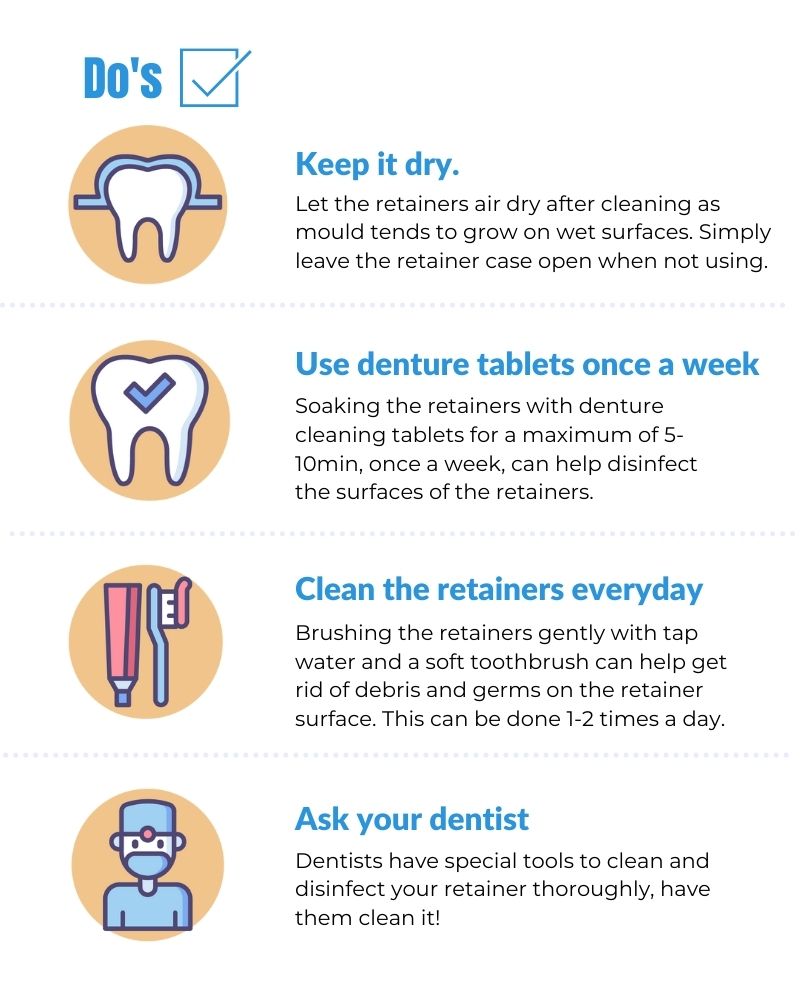
Conclusion
Keeping retainers clean ensures healthy teeth and gums. Regular cleaning prevents bacteria buildup. Use mild soap and warm water for daily cleaning. Avoid toothpaste, which can scratch retainers. Vinegar or baking soda solutions are effective for deeper cleans. Don’t forget to rinse thoroughly after each cleaning.
Consistent care will prolong the life of your retainers. Simple steps make a big difference. Clean retainers mean a healthier smile. Happy cleaning!

